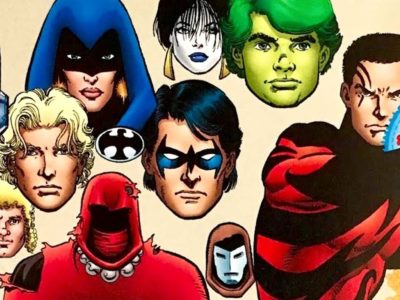
[ad_1]
Loki has officially come out as bisexual in the MCU, which is not only good for representation, but it is also crucial to understanding his character.
WARNING: The following contains spoilers for Loki Episode 3, “Lamentis,” streaming now on Disney+.
In Loki Episode 3, “Lamentis,” Loki officially confirms his sexuality during a conversation with an alternate version of himself from a different timeline, a Lady Loki who prefers to go by the name Sylvie. When Sylvie asks Loki about his romantic history, she asks if there was a special princess, or prince, in his life, to which he replies “A bit of both.” Director Kate Herron spoke about the importance of explicitly confirming Loki’s sexuality and making it canon in the Marvel Cinematic Universe, as well as how meaningful representation like this actually is. Furthermore, Loki’s sexuality is more than just a checkbox for representation: it’s actually crucial to understanding his character.
Loki’s behavior and characterization in the MCU is more fully realized through the canonization of his bisexuality. His queerness directly connects to his lust for power, which is well established in the MCU, and the Loki series continues to elaborate on the reasoning behind that lust. In Episode 1, Mobius grills Loki on his actions and motivations, after which Loki eventually relents and admits that his hurting people is “the cruel, elaborate trick conjured by the weak to inspire fear.” But why exactly does a god and prince of Asgard feel weak?
Loki’s feelings of insecurity can be better understood with the explicit confirmation of his sexuality. Being queer in a heteronormative society can be the source of tremendous anxiety, doubt and frustration. Even if a person comes from a supportive home, there is still something alienating about struggling to see yourself in others. Failing to find that reassurance of love and acceptance can lead to feelings of isolation. Loki feels different from Thor and Odin, which causes him to lash out and try to prove himself to them. It also creates some hostility, miscommunication and general misunderstanding, which leads to his MCU character arc.
The MCU’s Loki has already demonstrated these exact feelings through his discovery that he was not a natural-born son of Asgard, but a Frost Giant adopted by Odin and Frigga. He makes the discovery of his true heritage in the first Thor film and when he does, he describes himself as a monster thanks to his identity. However, this discovery happens years after he has already earned a reputation as the God of Mischief and also after he sneaks Frost Giants into the palace on Asgard to disrupt Thor’s would-be coronation. So the fact that he’s adopted doesn’t completely explain why he does the things he does. With his sexuality now confirmed, one could argue that his queerness is what made him feel alienated from his friends and family, providing another explanation for his actions.
Explaining someone’s motivations isn’t the same thing as condoning them, but what it does help to do is round out a character to their maximum depth and potential. Loki has become an MCU favorite despite his villainous roles and has actually been given the opportunity to function as more of a morally-grey anti-hero than the rest of the MCU’s more traditional stock villains.
There is a history of queer-coding villains in media, which is a problematic trope, but Loki is a little different due to the fact that he has already been granted the opportunity for moments of both trickery and heroism. Loki’s queerness may help audiences understand what led him to make villainous choices, but his queerness isn’t what made him a villain. In that same vein, Loki’s queerness improves representation in the MCU because his sexuality isn’t tokenism, but an integral aspect of his character.
The MCU has had very limited queer representation prior to Loki’s coming out, and currently, there is only one other confirmed queer person other than Loki and Sylvie. He is an unnamed man in Avengers: Endgame who discusses his date with a male partner in Steve’s support group. That character received some backlash, as queer fans found it shallow and the lack of character significance or substance that led to the inclusion felt pandering and insulting, even though the intention likely came from a genuine place.
Some of the Marvel Television shows had explicitly queer characters, but the canonicity of those series is still in question. Nevertheless, the MCU seems to be making more significant and concentrated efforts to improve their queer representation, as both Eternals and Thor: Love and Thunder will reportedly include same-sex relationships and the Loki series has certainly helped usher in this new era.
Loki’s gender fluidity and bisexuality is not only significant for representation, but it also speaks to his characterization as well. His queerness is an innate part of his identity and helps to explain his actions. By making that aspect of his character explicit and undeniable, the Loki series continues its work in fleshing out of the fan-favorite character in satisfying and important ways.
Loki stars Tom Hiddleston, Owen Wilson, Gugu Mbatha-Raw, Wunmi Mosaku, Sophia Di Martino, Richard E. Grant, Sasha Lane, and Eugene Cordero. New episodes air Wednesdays on Disney+.
About The Author
[ad_2]






